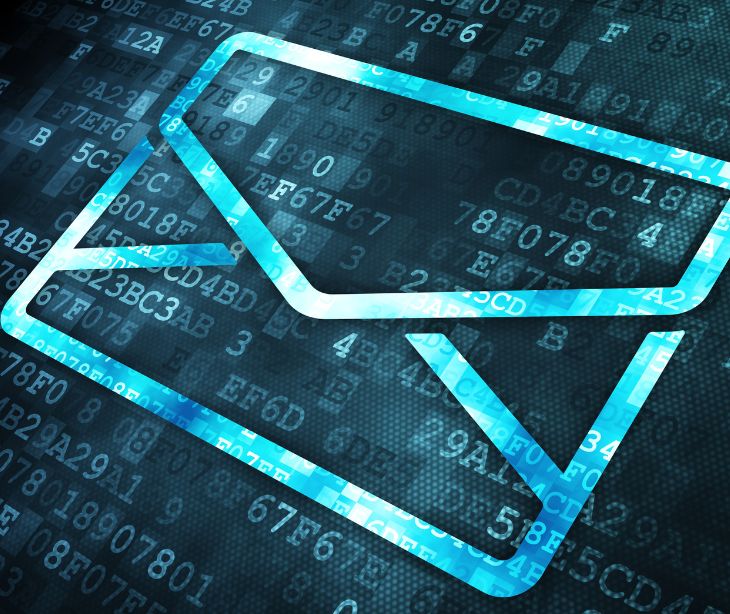2 min read
How to balance personalization and privacy for HIPAA compliance
Liyanda Tembani
April 2, 2024

Healthcare organizations must always balance personalizing email content to enhance patient engagement and ensure strict compliance with patient privacy regulations, especially HIPAA.
The power of personalization in healthcare email marketing
Personalization in email marketing involves tailoring content to individual recipients based on their preferences, behavior, and demographics. In healthcare, personalization can foster stronger patient relationships, boost patient engagement, and ultimately improve health outcomes. Patients are more likely to stay connected with their healthcare providers when they receive relevant and timely information that addresses their unique needs. According to a recent report, emails with personalized subject lines result in 50% higher open rates and patients are more likely to stay connected with their healthcare providers when they receive relevant and timely information that addresses their unique needs.
Here are specific ways personalization can be harnessed in healthcare email marketing:
- Customized health tips: Sending personalized health tips based on a recipient's medical history or current health conditions can empower patients to make informed decisions about their well-being.
- Personalized appointment reminders: Personalized reminders can significantly reduce no-show rates, enhancing patient satisfaction and clinic efficiency.
- Tailored medication reminders: Patients with chronic conditions often require medication management. Personalized reminders can help patients stay on track with their treatment plans.
- Individualized wellness recommendations: By considering patient preferences and health goals, email marketing can suggest wellness programs, classes, or resources that align with their interests.
Related: Why personalized healthcare emails are better
The role of HIPAA compliance
HIPAA imposes rules and standards for handling protected health information (PHI). When healthcare organizations engage in email marketing, they must be aware of HIPAA regulations to avoid costly legal repercussions and safeguard their reputation.
Safeguards for PHI protection under HIPAA include:
- Data encryption: All patient data transmitted via email must be encrypted to prevent unauthorized access.
- Access controls: Implement strict access controls to ensure only authorized personnel can access PHI.
- Audit trails: Maintain detailed audit trails that track who accesses PHI and when, providing transparency and accountability.
- Business associate agreements (BAAs): Ensure that any third-party email marketing service providers sign BAAs, acknowledging their responsibility for protecting PHI.
- Explicit patient consent: Obtain explicit patient consent for email communications and clearly explain how their data will be used.
Strategies for balancing personalization and privacy in healthcare email marketing
- Secure data collection and storage: Healthcare organizations must ensure that patient data is collected and stored securely. Implement encryption and access controls to protect PHI.
- Precise patient consent: Obtain explicit patient consent for email communications, clearly explaining how their data will be used and the benefits of personalized content.
- Segmentation for precision: Segment your email lists carefully to send tailored content only to those who have consented to specific types of information.
- Anonymization: Avoid using patient names or specific medical details in email subject lines or previews to prevent accidental data exposure.
- Ongoing testing and review: Regularly test your email campaigns for HIPAA compliance and review content to ensure they meet privacy standards.
Implementing HIPAA compliant email marketing
- To balance personalization and privacy in healthcare email marketing, healthcare organizations can use HIPAA compliant email marketing platforms. These platforms offer secure data handling, encrypted communications, and built-in safeguards to protect patient information.
- Your email campaigns should focus on delivering valuable but nonsensitive content that keeps patients informed without compromising their privacy.
FAQs
What role does patient consent play in healthcare email marketing?
Obtaining explicit consent ensures that patients are aware of how their data will be used and allows organizations to send personalized content while respecting privacy preferences.
How can healthcare organizations measure the effectiveness of their personalized email marketing campaigns?
Healthcare organizations can measure the effectiveness of their campaigns by tracking metrics such as open rates, click-through rates, conversion rates, and patient engagement levels.
Related: Key healthcare email marketing metrics for campaign success
Subscribe to Paubox Weekly
Every Friday we bring you the most important news from Paubox. Our aim is to make you smarter, faster.




